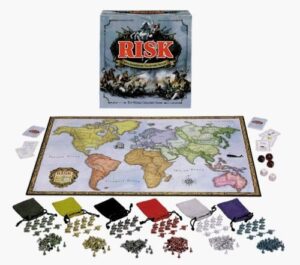This will only be a very short post, but one important new development on the borderline of patent law and antitrust law shall not be left unnoticed on this blog. The European Commission has fined Teva a whopping €462.6 million for abusing its dominant position to delay competition to its blockbuster medicine for the treatment of multiple sclerosis, Copaxone (API: Glatiramer acetate). According to this Press Release, the Commission found that Teva artificially extended the patent protection of Copaxone and systematically spread misleading information about a competing product to hinder its market entry and uptake.
The “artificial extension” of the patent protection was said to have resulted from
misusing the European Patent Office’s (“EPO”) rules and procedures on divisional patents. Divisional patents derive from an earlier ‘parent’ patent application and share similar content, but may focus on different aspects of the invention and are treated independently when it comes to assessing their validity. In this specific case, Teva filed multiple divisional patent applications in a staggered way, creating a web of secondary patents around Copaxone focusing on the manufacturing process and the dosing regimen of glatiramer acetate. Rivals challenged these patents to clear the way to the market. Pending review by the EPO, Teva started enforcing these patents against competitors to obtain interim injunctions. When the patents seemed likely to be revoked, Teva strategically withdrew them, to avoid a formal invalidity ruling, which would have set a precedent threating other divisional patents to fall like dominos. By doing so, Teva forced competitors to repeatedly start new lengthy legal challenges. This tactic allowed Teva to artificially prolong legal uncertainty over its patents and, potentially, hinder the entry of competing glatiramer acetate medicines. All Teva’s divisional patents have now been annulled.
This decision by the Commission, which is certainly appealable to the CJEU and not yet final, seems to be the first wherein “Playing The Divisionals Game” has been held to be an abuse of a dominant market position under Art 102 TFEU.
However, it should be noted that Teva was fined for two reasons, i.e. “playing the divisional game” and a “disparagement campaign”. Thus, it remains unclear to me – at least from the press release – whether playing this “Divisional Game” alone would also have triggered such a fine. The Commission does also not criticize the filing of divisional applications and their occasional abandonment as such. Nonetheless, I would certainly take their decision as a warning sign that divisional applications should at least be properly pursued and defended, if a decision is made to enforce them. Otherwise, as Teva has learned, the commercial risk can be significant.

Freder73, CC BY-SA 4.0 <https://creativecommons.org/licenses/by-sa/4.0>, via Wikimedia Commons
Of practical interest could also be the fact that the Commission seems to have conducted a dawn raid into several of Teva’s premises and “also relied on documents from Teva’s in-house lawyers who were involved in the design of its abusive strategy to protect Copaxone. In-house lawyer communications are not privileged under EU law.”
Nice weekend, everyone!
_____________________________
To make sure you do not miss out on regular updates from the Kluwer Patent Blog, please subscribe here.
Kluwer IP Law
The 2022 Future Ready Lawyer survey showed that 79% of lawyers think that the importance of legal technology will increase for next year. With Kluwer IP Law you can navigate the increasingly global practice of IP law with specialized, local and cross-border information and tools from every preferred location. Are you, as an IP professional, ready for the future?
Learn how Kluwer IP Law can support you.


